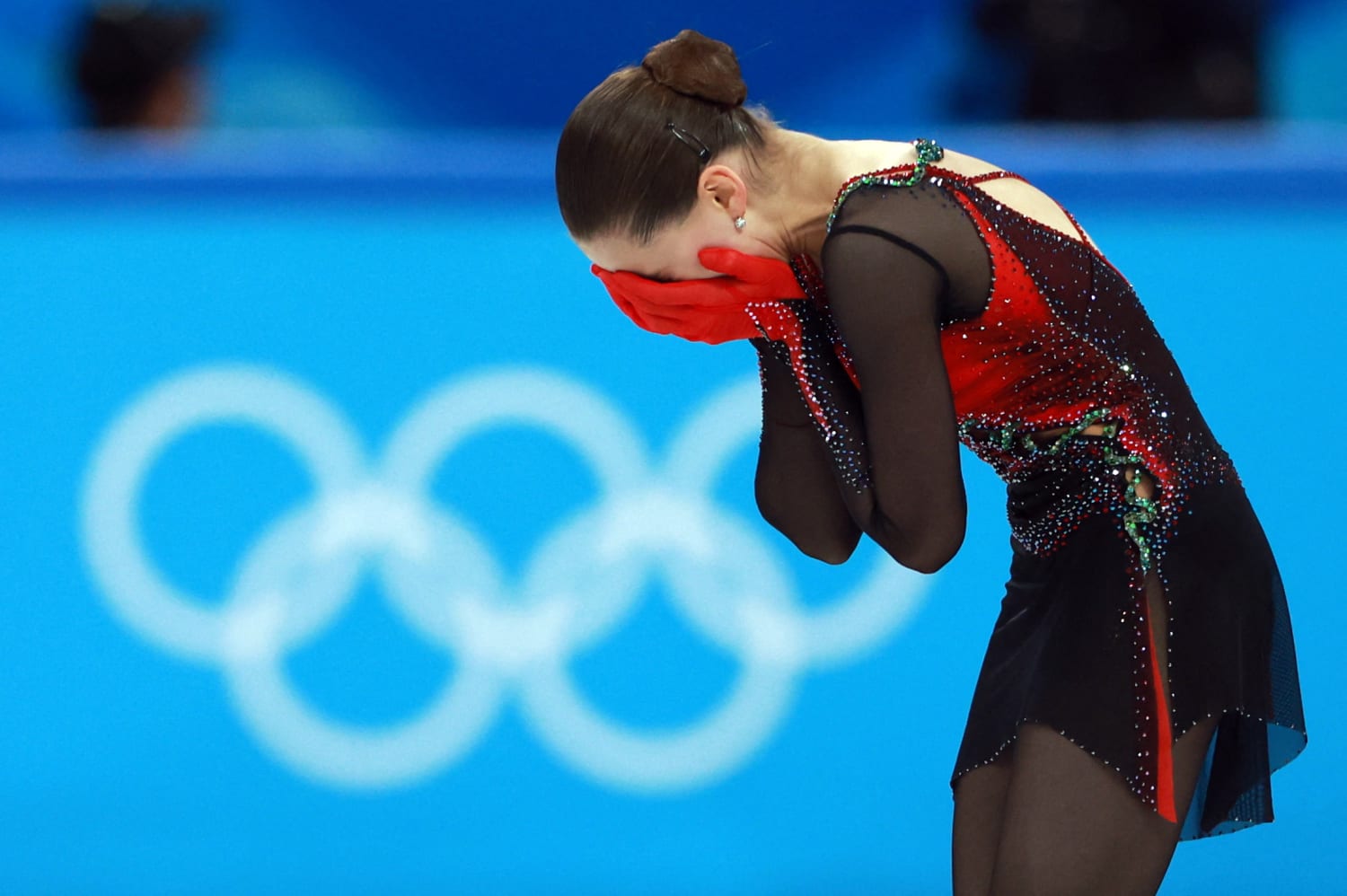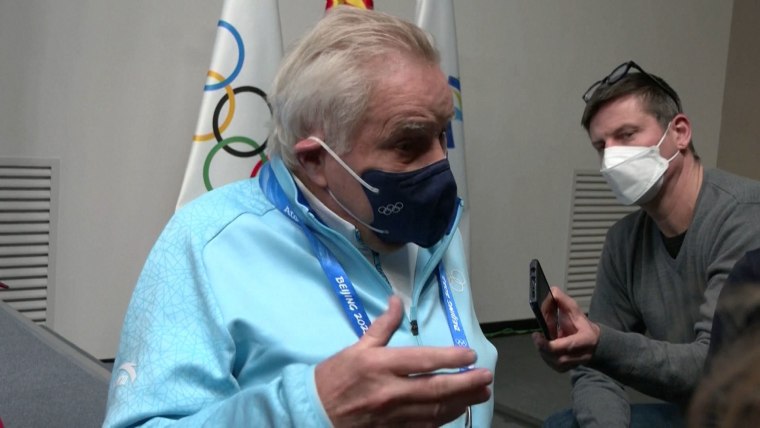Russian star Kamila Valieva burst into tears Thursday as she missed out on a medal in the women’s figure skating after a performance filled with mistakes and haunted by the doping saga that has come to dominate the Winter Olympics.
The 15-year-old prodigy and gold medal favorite made several errors in her routine, momentarily hitting the ice twice as she missed out on the podium.
Valieva placed fourth in the competition, which has been engulfed in the scandal surrounding her positive drug test before the Games.
The results means that a medal ceremony will take place, as Valieva did not place in the top three. Russian athletes did, however, with 2021 world champion Anna Shcherbakova and Alexandra Trusova winning gold and silver. Kaori Sakamoto of Japan captured bronze.
The raw emotion made for a dramatic end to a tumultuous week on and off the ice.
“It makes me angry that the adults around her weren’t able to make better decisions,” said NBC Olympics figure skating analyst Tara Lipinski watching the drama unfold. She added that Valieva “should not have been allowed to skate in this Olympic event.”
“Thank goodness for all the other medalist to have that moment [on the podium]” Lipinski said. “And to have done it cleanly,” added her fellow NBC Olympics figure skating analyst Johnny Weir.
Two days earlier, Valieva propelled herself into first place in the event with a score of 82.16 for her performance to Kirill Richter’s “In Memoriam” in the short program. For those skaters who make it through to the free skate event, the results of the competition are determined by adding the two scores together.
But on a Thursday her score of 141.93 was not enough to capture a medal, let alone gold. Her final score was 224.09 compared to Shcherbakova’s 255.95.
Valieva won gold last week alongside her Russian teammates in the figure skating team event, and was the clear favorite to win gold in the women’s individual event Thursday before the doping saga unfolded. She stands to lose that medal, however, if she is found to have committed a doping offense.
Earlier this week, sport’s top court ruled that Valieva could continue to compete despite having tested positive for banned heart medication, trimetazidine. Valieva took the test on Dec. 25 but the result only emerged last week, after she became the first woman to land a quadruple jump in Olympic competition while helping Russian athletes secure team gold. The United States took silver, Japan bronze and Canada came in fourth.
The decision to let her skate again in spite of that revelation has dismayed many athletes and officials around the world.
The case stands out partly because all eyes were already on Valieva, the figure skating prodigy destined for gold despite still being a minor.
But she’s also competing in the shadow of her country’s past.
Russia is currently barred from international sports competitions from December 2020 through the end of this year due to a previous doping scandal, with its athletes instead competing under the banner of the Russian Olympic Committee (ROC).
In its decision Monday, the Court of Arbitration for Sport said Valieva should be allowed to continue at the Beijing Games while anti-doping officials conduct a full investigation — in part because as a minor she is a “protected person” subject to different rules than adults.
The case did not decide the fate of the Olympic gold medal she has won. That issue will be dealt with in a separate, longer-term investigation led by the Russian Anti-Doping Agency, which took the sample in St. Petersburg, according to The Associated Press. The World Anti-Doping Agency (WADA) will have the right to appeal any ruling by RUSADA, it added.
WADA announced this week it will investigate the teenager’s formidable trainer and the entourage surrounding her in the lead-up to the Olympics.
The International Olympic Committee (IOC) said Thursday that its president Thomas Bach had met with the Team USA figure skaters, more than a week since the event. IOC spokesman Mark Adams said that there had been no meeting with Japanese athletes because the Japanese Olympic Committee had said “they fully accept the IOC’s approach to the situation.”
Valieva’s presence on the ice has drawn sharp criticism. And earlier this week, she suggested that the scrutiny had taken its toll.
She told Channel One Russia Monday that she was “happy” but “emotionally tired” following the court’s ruling.
The Associated Press and David K. Li contributed.
Source: | This article originally belongs to Nbcnews.com











